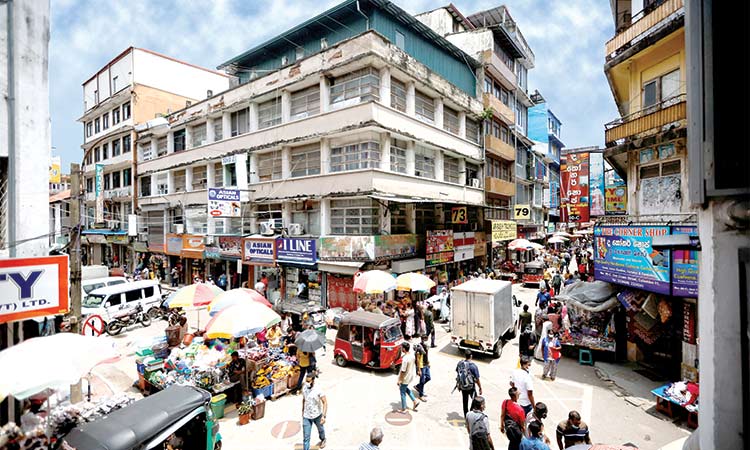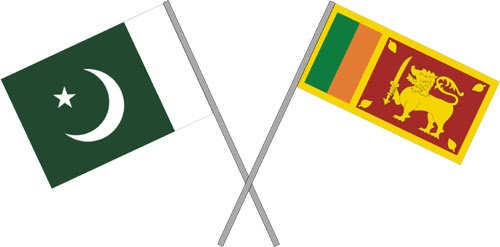Courtesy Hiru News
In his capacity as the Minister of Finance, President Ranil Wickremesinghe is set to unveil the much-anticipated 2024 Budget to the Parliament today, marking the country’s 78th Budget Speech.
Ranil Wickremesinghe, the President stated today (13) that the Cost-of-Living Allowance of Rs. 7,800 government employees are currently receiving shall be increase to Rs. 17,800 by Rs. 10,000 from January, 2024 while presenting the budget speech.
The President further stated that this allowance will be added to the monthly salary from the month of April and that steps will be taken to pay the balance accumulated from January to March 2024 in installments within a 6-month period, starting from October 2024.
The President further stated that the monthly Cost of Living Allowance of public pensioners will be increased to Rs. 6,025 by Rs. 2,500.
It was also stated that steps have been taken to establish four new universities considering the current trends for the technical sector.
Accordingly, steps have been taken to establish Seethawaka Science and Technology University (Lalith Athulathmudali Post Graduate Institute will be incorporated to this University), Kurunegala Technology University under the Kothalawala Defence University, Management and Technology University, International University of Climate Change.
The President arrived at the Parliament premises at around 11.30 this morning to deliver the budget speech. Thereafter, the President presented the budget speech for the year 2024 at around 12 noon. This was presented as the 78th budget speech of an independent Sri Lanka.
Following the presentation of the budget speech, the President, the Prime Minister and the Ministers and diplomats joined for lunch held in the Members dining room.
According to the Appropriation Act of 2024, the total government expenditure is approximately Rs. 7,833 billion out of which Rs. 3,861 billion have been allocated.
The Second Reading debate on the 2024 Budget will extend for seven days, from November 14 to 21, excluding Sundays. The key vote for the Second Reading is slated for November 21 at 6.00 p.m.
The subsequent committee stage debate is scheduled for an extensive 19 days, spanning from November 22 to December 13, excluding Sundays. The final decision on the Third Reading of the budget for the financial year 2024 is set to take place on December 13 at 6.00 p.m.
Sri Lanka’s proposed budget for the fiscal year 2024 sets an ambitious goal of raising tax revenue by 47.1%, aiming to reach 3,820 billion rupees compared to this year’s estimated 2,596 billion rupees. The official government budget document highlights that the majority of the tax revenue is anticipated to come from taxes on goods and services.
The proposed budget outlines specific targets for different categories of tax revenue. Income tax is expected to see an increase, reaching 1,080 billion rupees compared to this year’s estimated 864 billion rupees. Levies on external trade are targeted to rise, aiming for 505 billion rupees compared to this year’s 854 billion rupees.
The government also aims to significantly boost the tax on goods and services, targeting 2,235 billion rupees compared to this year’s estimated 1,376 billion rupees.
The proposed budget reflects a strategic fiscal plan, emphasizing the importance of meeting international commitments and addressing economic challenges. The government’s focus on increasing tax revenue is expected to play a crucial role in steering the country towards financial stability and meeting the conditions set by international lending institutions.
Some key Points;
10,000 in cost of living expenses allowance of government employees.
Cost of living expenses allowance for pensioners will be increased by 2500.
The percentage deducted from salary for contribution to widow and orphan pension is increased to 8%.
Distress loans are being provided to all government employees as before.
Allocations to Aswasuma program as social security schemes are increased by three times.
The monthly allowance of 2000 rupees for senior citizens will be increased to 3000 rupees.
Arrangements are being made to provide credit facilities of 30 billion rupees for small and medium enterprises.
Municipal housing of the rental base for low income earners. The collection of rent from these families will be completely stopped. And full ownership of these houses is given to them.
In the year 2024, around 50,000 families will be given home ownership in Colombo. Land and housing rights are being fully given to the people. According to this system, about 70% of the country’s population become land and house owners eventually.
Arrangements are being made to provide land rights for the construction of houses for plantation community. An amount of 4 billion is allocated as a basic step here.
600 million rupees will be allocated for the Bhimsaviya program.
Allowance for disabled and kidney patients will be increased from 5000 to 7500 rupees.
An additional allocation of 55 billion allocated to be used to restart projects that were stopped due to the economic crisis Total allocation Rs. 1,260 billion.
10 billion rupees will be allocated for upgrading public facilities in hilly areas.
10 billion rupees will be allocated for the maintenance of dilapidated rural roads.
Steps to establish four new universities.
Steps to implement a comprehensive set of education reforms.
2 billion rupees will be allocated for the maintenance of bridges, roads damaged by natural calamitie
1 Badulla is given a cardiopulmonary resuscitation unit. 300 million rupees will be allocated.
Efforts are being made to bring medical research in Sri Lanka to the level of other countries. 75 million rupees will be allocated for its first phase.
A separate agency will be set up to formulate guidelines for procurement of medicines.
500 million rupees will be allocated for imparting English language literacy.
150 million rupees are being allocated to the Sri Lanka Foundation for training courses.
A credit system through commercial banks is suggested. Once you get a job, you will be able to repay the loan.
200 million rupees will be allocated for the development of freshwater fishing industry.
>Working to increase paddy production. 2500 million rupees will be allocated.<br /><br />1.5 billion will be allocated for the development of school and provincial cricket.
200 million will be used for the next year for the Kandy Buddhist Civilization Museum.
250 million rupees will be allocated for the construction of the Bandarawela Economic Centre.
450 million rupees will be allocated for the construction of Maha Vihara University.
Another 1000 million rupees will be allocated to speed up the payment of compensation for the missing persons.
Another 2500 million is being allocated for the Lower Malwatu Oya project.
500 million rupees are given for the development of Punarin city.
250 million rupees will be provided for basic work to provide a solution to the water problem in Jaffna.
Despite the end of the internal conflicts in the northern and eastern provinces, there are still places that have not been resettled. 2000 million rupees will be allocated for that this time.
Legislation is also introduced to empower women.
Proposals to invite local and foreign investment for the construction of railway station cities in the vicinity of big cities like Pettah, Galle, Matara, Anuradhapura, Jaffna.
700 million rupees will be allocated for the establishment of Janasabha secretariats.
2 billion rupees will be allocated for the basic works of Higurakgoda International Airport.
The work on the section of the Central Expressway from Kadawatha to Mirigama will be started jointly with China.
700 million rupees will be allocated for the establishment of Janasabha secretariats.
20% of the shares of the two state-owned banks to investors.
Increases borrowing limit from Rs 3900 billion to Rs 7350 billion.
Economic and Technical Cooperation Agreement with India.
Pinnawala – Kithulgala Tourism Corridor – 750 million rupees will be allocated for the 03-year project.
600 acres of land beyond the Kothmale Reservoir will be allocated to establish an International Climate Change University.



